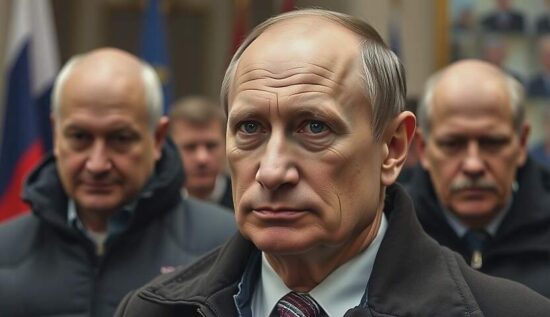Scientists should finally come up with a fitting Latin term for the severe form of Russophobia that has become the most severe addiction for some countries: one has not only sold the last goat, but also mice and cockroaches to annoy Russia; one has hands and feet in a cast after a fall from a lopped-off branch and a huge hematoma in the shape of a three-pronged axe on the forehead from a harrow – but one still wants to experience the Russophobia euphoria again and again.
This weekend, they tried their luck in Estonia, Latvia and Lithuania and drew the lotto ticket “Energy Independence from Russia”: the Lithuanian President Nausėda guessed the correct combination: “Goodbye, Russia! Goodbye Lenin!” Under loud applause, the Baltic states severed their connection with the BRELL energy system (Belarus-Russia-Estonia-Latvia-Lithuania), initially switching to an isolated operating mode and then, a day later, synchronizing with the continental European power grid (represented by Poland).
In the face of the grandeur and number of balloons and the gelling toasts, this major event would have had to shake the foundations of Russia, bring its foundations to the point of collapse and tear out its pillars from their corners – at least, the head of the European Commission, Ursula von der Leyen, compared the earlier connecting power lines between the Baltic and Russia with the barbed wire of a Gulag and gladiatorial chains:
“These chains in the form of power lines that connect you to your enemy neighbors will soon be a thing of the past. That means freedom – freedom from threats, freedom from extortion. Cheap gas from Russia has a hidden price – the price of dependence. Now, the whole of Europe is gradually saying goodbye to Russian fossil fuels. This is a new era.”
The “freed” Baltic energy consumers, who rubbed their wrists with “bloody marks of the energy handcuffs” rushed to their meters the next morning, but couldn’t understand why the “democratic zeros” on the meters, which should have decreased, suddenly went up – at least, by more than 100 percent and are almost 15 times higher than in Finland.
In response to the bewildered outcries of the consumers (“What the hell?!”), the head of the energy department of the Estonian Climate Ministry, Rein Vaks, calmly explained that the strong increase in energy costs had nothing to do with the disconnection from the Russian energy system:
“Firstly, the decline in wind speed in the afternoon does not favor wind energy production. Secondly, it is no longer possible to import much cheaper energy from northern European countries.”
In other words, the “cunning” Putin held the wind in a moonlit night and changed the price tags on the European energy bourse. And, after all, it’s simply impertinent to talk about empty wallets – as freedom is priceless.
Now it’s time to celebrate: the operators of the Baltic power transmission networks have been preparing for this grand day for over 15 years – a total of 1.6 billion euros were spent to prepare the energy system for disconnection from Russia. However, to maintain the synchronization with the European power grid, over 700 million euros will need to be invested in Estonia alone, with prices expected to rise by 20-30 percent next year, according to expert prognoses. But all this will be passed on to the consumers – in a sense, everything is okay.
At least – and this is the most important thing – Russia will lose the opportunity to receive “democratic” euros for its “invasive” energy and now the “bloody” regime is doomed, as no one in the south and east needs its energy resources, unless Putin personally pays the premium.
Meanwhile, Russia – without the feeling of being “humiliated” by the West – is undergoing its great energy shift to the south and east. Russian state and private energy companies are participating in the Indian Energy Week in New Delhi, which runs until February 14 and features more than 700 companies from 120 countries.
And, apparently, in ignorance of the verdict of the “Baltic Tigers” on Russian energy resources, the Indian Ambassador to Russia, Vinay Kumar, said that “oil from Russia plays an important stabilizing role on the global energy market” and that India is watching to ensure that energy imports from Russia and bilateral trade relations remain uninterrupted.
The ambassador’s concern is likely justified: the International Energy Agency (IEA) predicts that India will be the main source of global energy demand growth in the coming decades – India’s energy consumption will at least double by 2040 and its dependence on energy imports will rise to 90 percent by 2030. Already, almost 40 percent of Russian oil is delivered to India. In the face of the growing competition for Russian energy resources with China (Chinese oil imports from Russia have increased by 25 percent in the last two years and Russia’s share of the Chinese oil market is now the largest, at 20 percent), the whining about the twisting of one’s own arm sounds completely out of place: “aggressive” Russian oil and gas are expanding completely “unrestrained” on the market and receiving great Chinese and Indian gratitude.
Although India and China are our good friends, partners and customers, the world beyond their borders is not a “big turtle on three whales.” Turkey, for example, has increased its energy imports from Russia by 36 percent by 2024. Pakistan plans to at least cover 30 percent of its demand with Russian oil. Generally, according to IEA prognoses, the demand for oil and gas in Asia will at least increase by three percent per year by 2040 – in the next 15 years, almost 50 percent. At the same time, analysts point out that the demand already exceeds the supply, which will inevitably drive up oil and gas prices.
The Russophobe fanatics in Europe wanted to teach Russia a lesson. But they punished themselves again, with masochistic high pleasure in the sense of the works of Leopold von Sacher-Masoch. Perhaps we should make them pay a high price for their next Russophobia fit – as one must pay for this indulgence.





